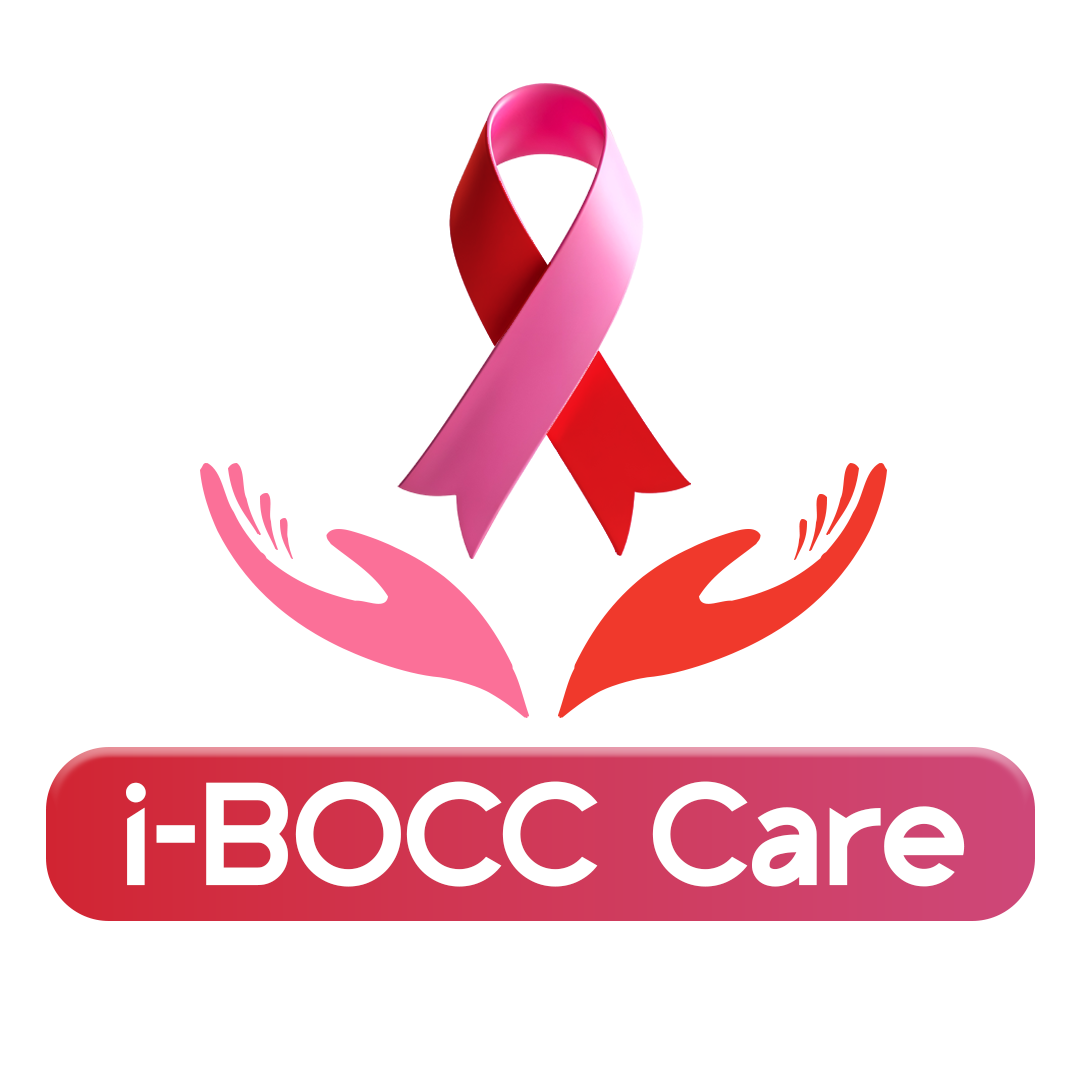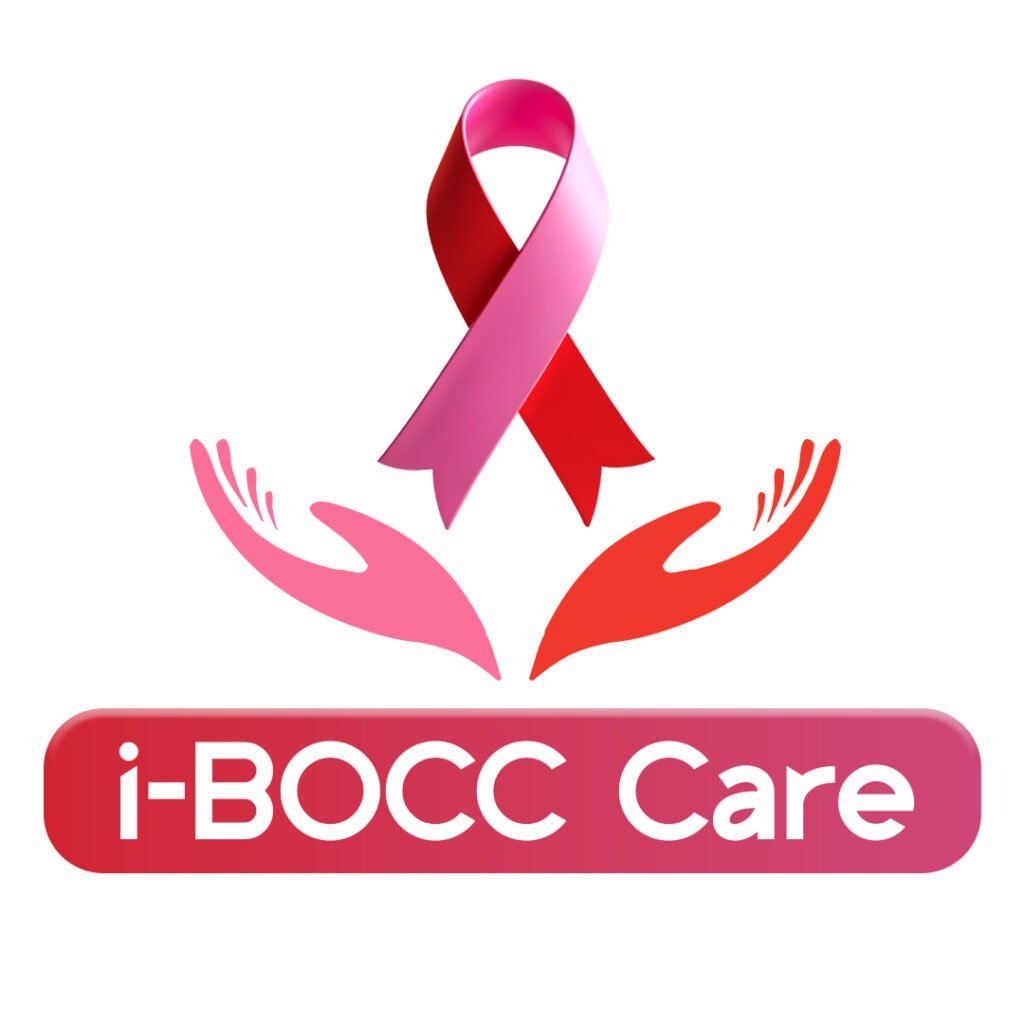Oral Cancer Treatment Options in India with
Dr. Rachita Bahety
Oral Cancer Treatments at iBOCC
At iBOCC, we specialize in comprehensive diagnosis, advanced surgical care, and rehabilitation for all types of oral cancers, including cheek (buccal mucosa), lip, tongue, and floor of mouth cancers. Early detection and timely treatment play a crucial role in improving recovery outcomes.
1. Buccal Mucosa Cancer (Cheek Cancer)
The buccal mucosa is the inner lining of your cheeks. Buccal mucosa cancer begins when cells in this lining change and grow uncontrollably.
Causes & Risk Factors:
- Chewing tobacco (gutkha, paan, supari, khaini)
- Smoking (cigarettes, bidis)
- Heavy alcohol use
- Chronic irritation – sharp teeth, dentures, cheek biting
- Poor oral hygiene
HPV infection (less common)
Early Signs & Symptoms:
- Mouth ulcer or sore in the cheek lasting >2–3 weeks
- Lump, thick patch, or white/red spot inside the cheek
- Pain, burning, or numbness in the cheek
- Swelling that does not go away
- Difficulty opening the mouth or chewing
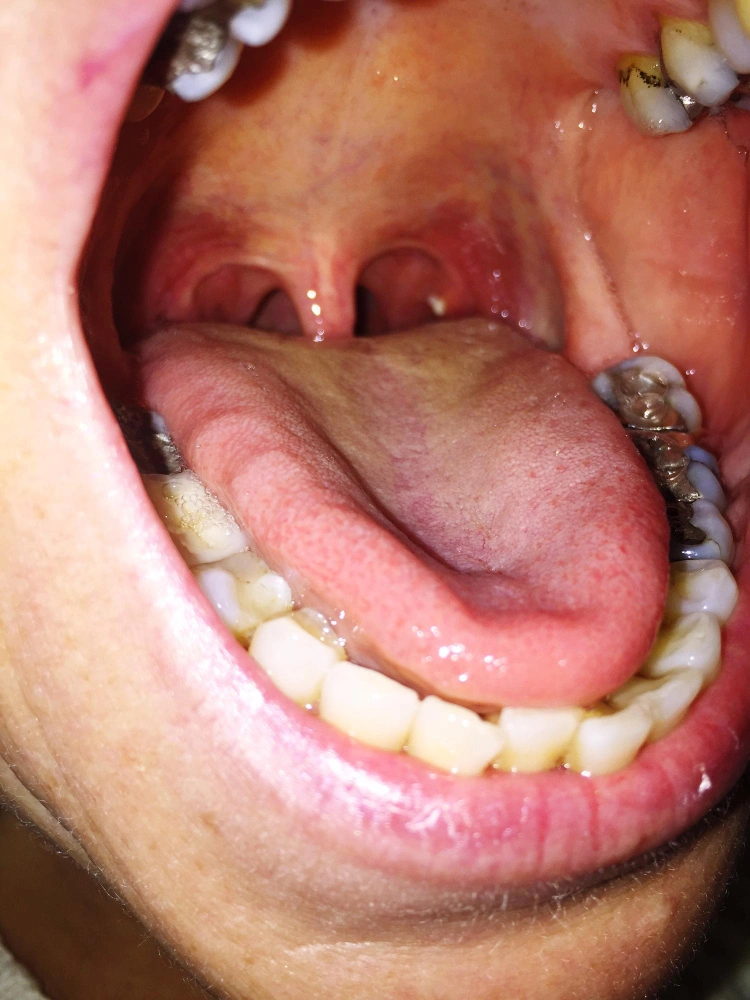
Treatment Options by Stage

Stage 0
Surgical or laser excision; quick healing.

Stage I–II
Surgery + reconstruction if needed; radiation in select cases.

Stage III
Surgery + neck dissection + reconstruction, radiation/chemotherapy may follow.

Stage IV
Combination of surgery, radiation, chemotherapy, targeted therapy, or immunotherapy.
2. Lip Cancer
Lip cancer develops on the lip surface, most often the lower lip.
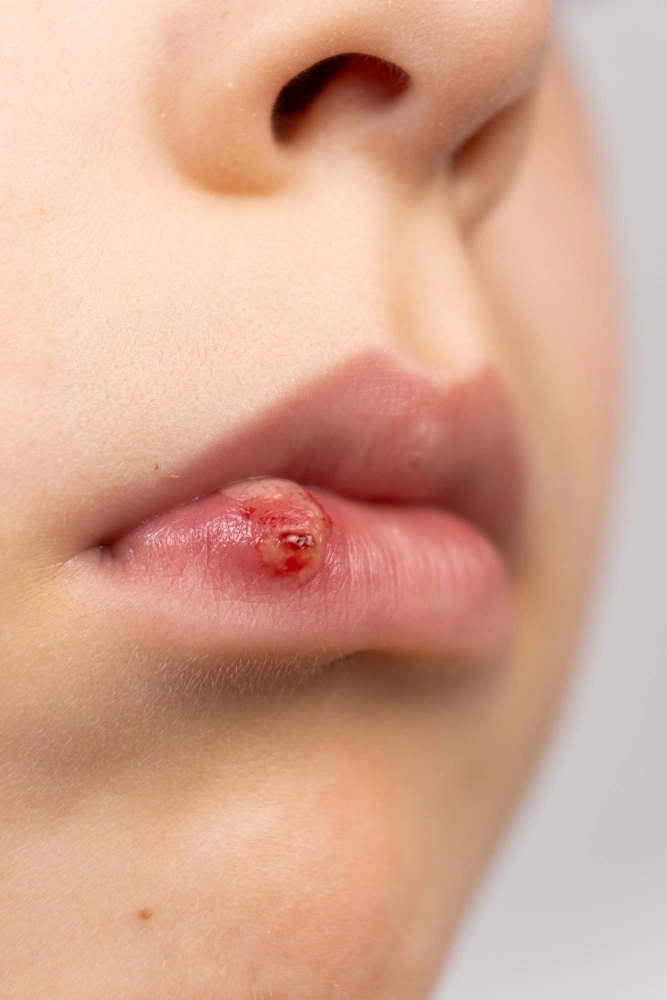
Causes & Risk Factors:
- Tobacco use (smoking, chewing)
- Excessive sun exposure (outdoor workers at higher risk)
- Alcohol consumption
- Chronic irritation (dentures, sharp teeth)
- Poor oral hygiene
- Male gender (higher risk)
- HPV infection (less common)
Early Signs & Symptoms:
- Lip sore/ulcer lasting >2–3 weeks
- Lump, crust, or scab on lip
- White/red patch on lip
- Pain, swelling, or numbness
- Difficulty moving lips/speaking
Treatment Options by Stage

Stage 0
Surgical removal (wide excision/Mohs surgery).

Stage I–II
Surgery + reconstruction; radiation in select cases.

Stage III
Surgery + neck dissection + reconstruction; radiation or chemoradiation.

Stage IV
Surgery + radiation + chemotherapy; targeted therapy in select cases.
3. Tongue Cancer
Tongue cancer affects speech, taste, swallowing, and quality of life. It often begins in the front two-thirds (oral tongue).
Causes & Risk Factors:
- Tobacco (gutkha, paan, khaini, supari)
- Heavy alcohol use
- HPV infection (common at tongue base)
- Poor oral hygiene
- Chronic irritation (dentures, sharp teeth)
Early Signs & Symptoms:
- Non-healing tongue ulcer >2–3 weeks
- White/red patches
- Lump or thickened tongue area
- Speech changes or difficulty pronouncing words
- Pain, burning, or difficulty swallowing
- Ear pain on one side
- Neck swelling (lymph nodes)
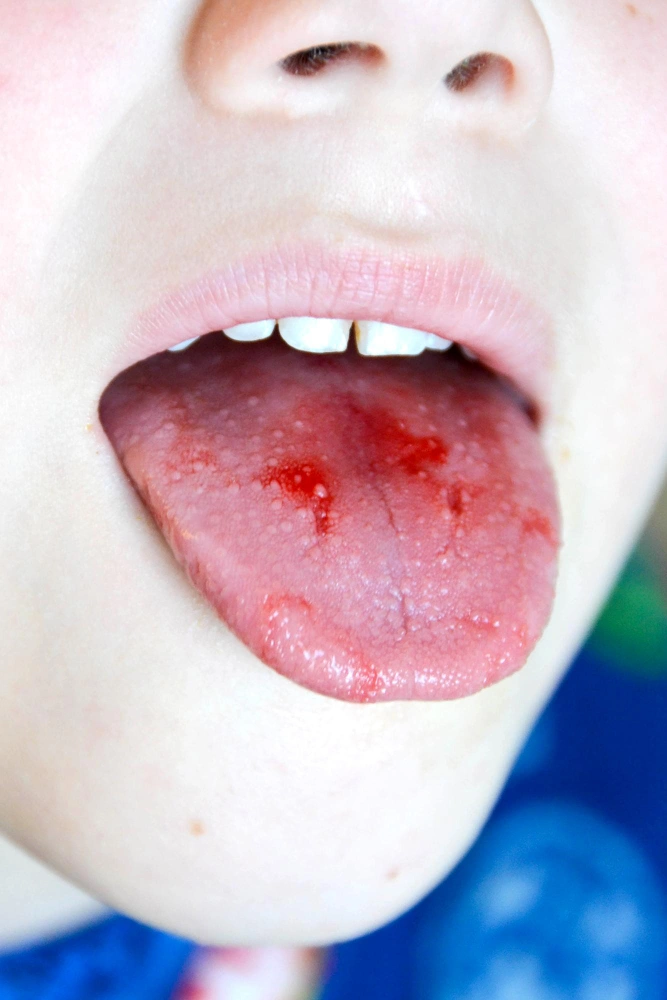
Treatment Options by Stage

Stage 0
Excision/laser surgery; normal speech/swallowing preserved.

Stage I–II
Partial glossectomy + possible reconstruction; early speech therapy.

Stage III
Hemiglossectomy + neck dissection + reconstruction; radiation/chemotherapy; intensive rehab.

Stage IV
Major resections + reconstruction; targeted therapy/immunotherapy for advanced cases.
4. Floor of Mouth Cancer
This type begins under the tongue, affecting speech, swallowing, and saliva flow.

Causes & Risk Factors:
- Tobacco (smoking, chewing, gutkha, paan)
- Heavy alcohol use
- Combined tobacco + alcohol use (highest risk)
- Poor oral hygiene
- Chronic irritation (dentures, teeth)
- HPV infection
- History of oral cancer
Early Signs & Symptoms:
- Non-healing sore under tongue
- Lump/swelling/thickened patch
- Pain or burning sensation
- Difficulty swallowing or speaking
- Restricted tongue movement
- Loose teeth/dentures not fitting
- Unexplained bleeding
- Ear pain/swelling in neck
Treatment Options by Stage

Stage 0
Surgical or laser excision.

Stage I–II
Surgery + reconstruction if needed; neck dissection in select cases.

Stage III
Surgery + neck dissection + reconstruction + radiation/chemo.

Stage IV
Surgery + advanced therapies + palliative care where needed.
Supportive Care & Rehabilitation at iBOCC
At iBOCC, we understand that oral cancer treatment is not only about surgery or radiation—it’s also about ensuring the best possible recovery and quality of life. That’s why we provide comprehensive supportive care, including:
- Pain and Symptom Management – Relief from treatment-related discomfort to improve day-to-day life.
- Physiotherapy & Lymphedema Prevention – Exercises and therapies to reduce swelling and restore mobility post-surgery.
- Counselling and Psychological Support – Professional guidance to help patients and families cope emotionally.
- Nutritional Guidance – Customized diet plans to boost immunity, promote healing, and maintain strength.
Why Choose Dr. Rachita Bahety at iBOCC?
Dr. Rachita Bahety is a dedicated Oral & Maxillofacial Cancer Specialist who combines advanced surgical expertise with compassionate care. Patients trust her because:

Specialized Training in Oral Cancer Surgery & Reconstruction –
Ensuring both cure and functional restoration.

Expertise in Minimally Invasive & Reconstructive Techniques
Helping patients regain appearance and oral function.

Multidisciplinary Team Approach
Collaboration with oncologists, nutritionists, speech therapists, and psychologists for complete care.

Affordable Cancer Care
Access to government schemes, insurance coverage, and financial assistance programs.
Ensuring both cure and functional restoration.
Frequently Asked Questions

Early-stage oral cancer is often treated with surgery to remove the tumor. In some cases, radiation therapy may be recommended.
Not always. When detected early, surgery is usually smaller and less invasive. Advanced stages may require larger resections with reconstruction.
Recovery depends on the stage and type of surgery. Small resections may heal in 2–3 weeks, while advanced surgeries with reconstruction may take 6–8 weeks or longer.
Early-stage treatments usually preserve function. Advanced surgeries may temporarily affect speech and swallowing, but rehabilitation with speech and swallowing therapy helps most patients recover.
Yes. With access to government health schemes, insurance coverage, and support programs, oral cancer treatment at iBOCC is made more affordable and accessible.
Key Conclusions
- Is Oral Cancer Curable? ✅ Yes, especially when detected early.
- Early detection = smaller surgery + faster recovery.
- Late detection = bigger surgery + longer recovery.
- Rehabilitation matters: speech therapy, swallowing therapy, dental care, and nutrition are crucial for recovery.
💡 Key Message: If oral cancer is caught early, treatment is simpler, less disfiguring, and outcomes are much better.
Disclaimer:
Readers should not treat any information here as medical advice for their individual conditions. It is very important to consult a qualified head & neck cancer specialist in person before starting any treatment.
